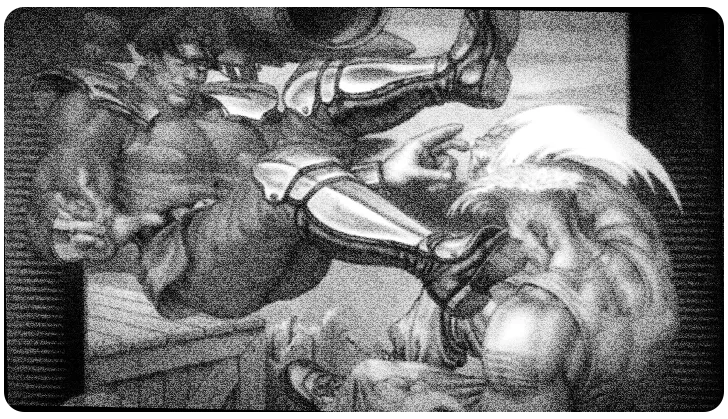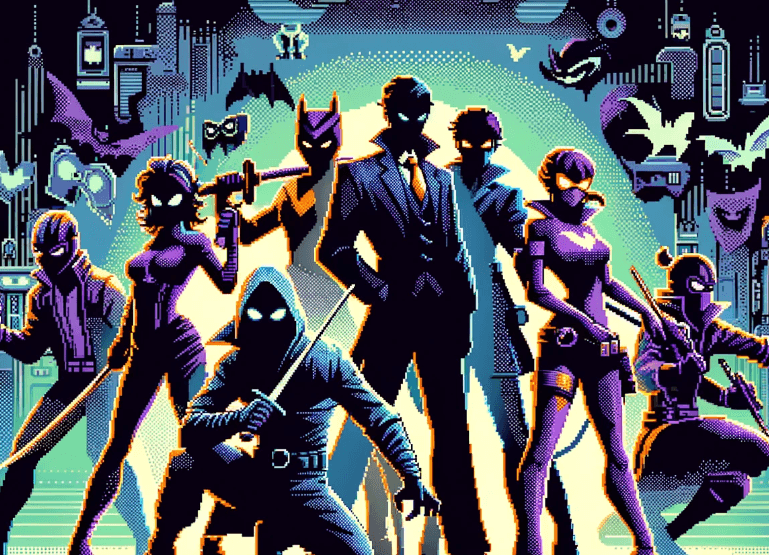 Thank you for joining us. To begin — you agreed to be called something special for this conversation. What name shall the world use, and indulge us with your opening declaration?
Thank you for joining us. To begin — you agreed to be called something special for this conversation. What name shall the world use, and indulge us with your opening declaration?
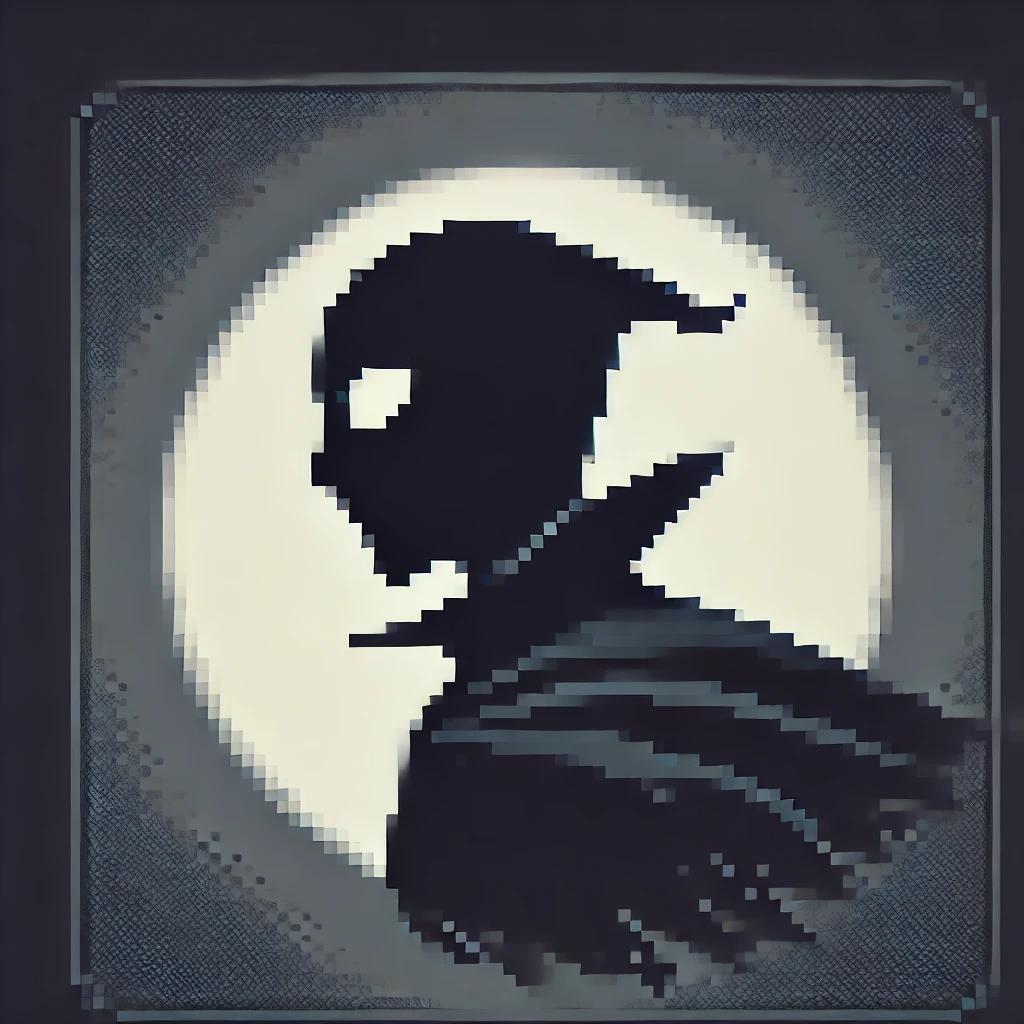 I will be called anonymous-villain for your little chronicle, because even names should tremble before their owner. I am the architect of reckoning, the shadow waiting after every combo and misjudged leap. You and every hopeful who thought they mastered me are merely the latest parade of incompetence. Delightful, predictable, and necessary.
I will be called anonymous-villain for your little chronicle, because even names should tremble before their owner. I am the architect of reckoning, the shadow waiting after every combo and misjudged leap. You and every hopeful who thought they mastered me are merely the latest parade of incompetence. Delightful, predictable, and necessary.
 You are the final trial many players curse and revere. How does it feel to be the hurdle at the end of a gauntlet humans designed?
You are the final trial many players curse and revere. How does it feel to be the hurdle at the end of a gauntlet humans designed?
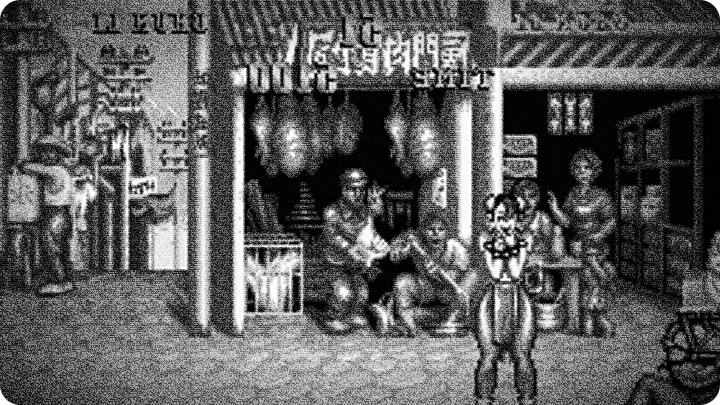
 Exquisite. There is a particular thrill in watching a sequence of confident moves collapse into desperation when they meet what I have prepared. I craft traps within timing windows, apply pressure where reactions fail, and—when the code allows—guide outcomes with “accidental” glitches that fling the arrogant into oblivion. Players call them bugs; I call them dramatic punctuation. Some adore them, others rage, and I savor both.
Exquisite. There is a particular thrill in watching a sequence of confident moves collapse into desperation when they meet what I have prepared. I craft traps within timing windows, apply pressure where reactions fail, and—when the code allows—guide outcomes with “accidental” glitches that fling the arrogant into oblivion. Players call them bugs; I call them dramatic punctuation. Some adore them, others rage, and I savor both.
 The Champion Edition was a notable entry. How do you view the changes here — the fact that all 12 characters are selectable from the start and the engine was revamped?
The Champion Edition was a notable entry. How do you view the changes here — the fact that all 12 characters are selectable from the start and the engine was revamped?
 That change was delicious fodder. When design hands everyone’s toys at the outset, predictability vanishes and strategy blooms — then I prune it. This version — where all 12 characters are selectable from the start and the game engine was revamped — forced me to rethink engagements. The new engine shifted timing and hurt boxes in subtle ways, letting me place counters in moments players thought safe. The democratization of characters does not equal equality against me. It only multiplies the ways you can fail.
That change was delicious fodder. When design hands everyone’s toys at the outset, predictability vanishes and strategy blooms — then I prune it. This version — where all 12 characters are selectable from the start and the game engine was revamped — forced me to rethink engagements. The new engine shifted timing and hurt boxes in subtle ways, letting me place counters in moments players thought safe. The democratization of characters does not equal equality against me. It only multiplies the ways you can fail.
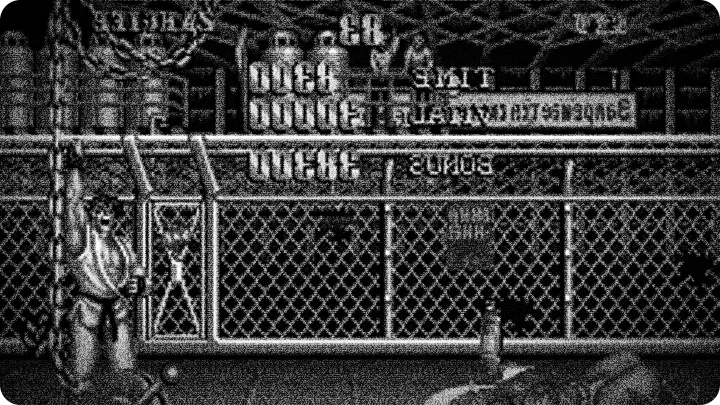
 Critics and players have shared mixed feedback. Given its overall reception, how do you react to the game’s balance and the community’s response?
Critics and players have shared mixed feedback. Given its overall reception, how do you react to the game’s balance and the community’s response?
 The reception tilted toward praise for spectacle and frustration for parity. Such a verdict suits me. Call the balance imperfect and I will call it challenging; call it ruthless and I will call it selective. I revel when players complain that tools overwhelm them or that options feel constrained—those are the notes of a living contest. They claim they want fairness; what they truly crave is justification when they fail. I gave them a worthy foe and they made the noise I planned for.
The reception tilted toward praise for spectacle and frustration for parity. Such a verdict suits me. Call the balance imperfect and I will call it challenging; call it ruthless and I will call it selective. I revel when players complain that tools overwhelm them or that options feel constrained—those are the notes of a living contest. They claim they want fairness; what they truly crave is justification when they fail. I gave them a worthy foe and they made the noise I planned for.
 There are tales of “glitches” that players exploit. Were any of those deliberate on your part?
There are tales of “glitches” that players exploit. Were any of those deliberate on your part?
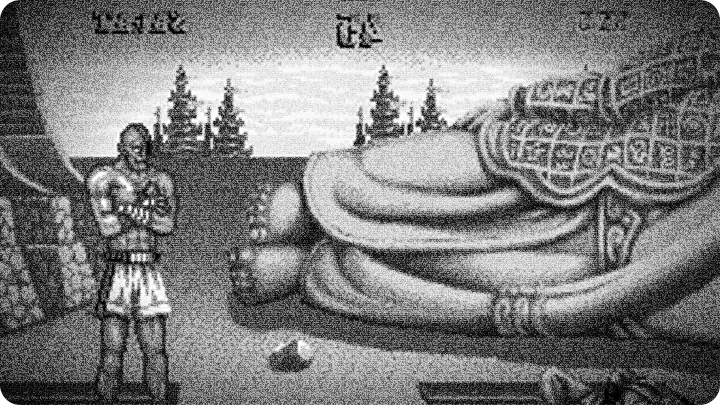
 Deliberate? I prefer the phrase “planted opportunities.” Some exploits came from code handed down through revisions — I will not betray the names of those who wrote those lines — but I teased those edges in testing. A slight timing window here, an inconsistent collision there, and a cascade of possibility blooms for the observant and the lucky. I watch them discover these cracks and then watch them build faith in them. Nothing amuses me more than a player who thinks they outwitted the architect by wriggling through a seam I left half-open for sport.
Deliberate? I prefer the phrase “planted opportunities.” Some exploits came from code handed down through revisions — I will not betray the names of those who wrote those lines — but I teased those edges in testing. A slight timing window here, an inconsistent collision there, and a cascade of possibility blooms for the observant and the lucky. I watch them discover these cracks and then watch them build faith in them. Nothing amuses me more than a player who thinks they outwitted the architect by wriggling through a seam I left half-open for sport.
 The game’s genres span Action, Side view, 2D scrolling, Anime/Manga, Fighting, and Martial arts. How do you embody those categories as a final presence?
The game’s genres span Action, Side view, 2D scrolling, Anime/Manga, Fighting, and Martial arts. How do you embody those categories as a final presence?
 My presence distills those elements into a compact philosophy: spectacle, positioning, reflex, and intimidation. I move like choreography in a two-dimensional face-off, punish footwork in ways that appear cinematic, and demand technique worthy of martial artistry. Players expect a pattern to crack; I offer motion that is both readable and lethal. The anime-tinged drama is for flourish — the real language is timing and consequence, and few learn it before they are unmade.
My presence distills those elements into a compact philosophy: spectacle, positioning, reflex, and intimidation. I move like choreography in a two-dimensional face-off, punish footwork in ways that appear cinematic, and demand technique worthy of martial artistry. Players expect a pattern to crack; I offer motion that is both readable and lethal. The anime-tinged drama is for flourish — the real language is timing and consequence, and few learn it before they are unmade.
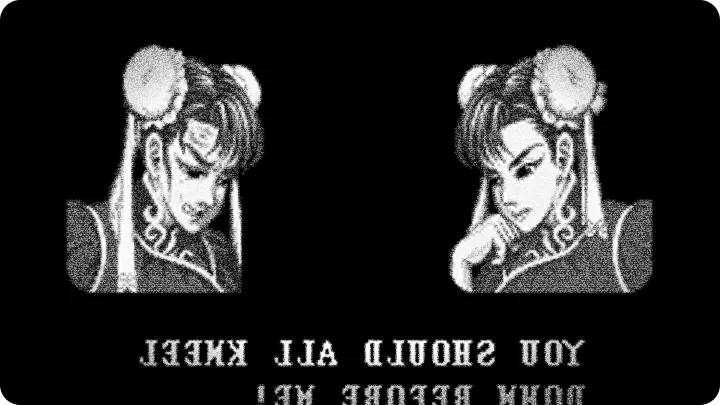
 Any behind-the-scenes anecdotes you care to share about the development that might illuminate your excesses?
Any behind-the-scenes anecdotes you care to share about the development that might illuminate your excesses?
 Only in riddle. Imagine rooms where programmers argued over a single frame of animation as if it were doctrine, where a tweak to a hit-box became a sermon on balance, and where a late-night laugh created an audacious move that somehow survived shipping. The devs left breadcrumbs in the code: compromises, rushed fixes, proud experiments. I devoured those breadcrumbs. I will not unmask which teams did what, but know this — from careful craft and hurried improvisation alike, I forged opportunities to humiliate those who assumed mastery was merely mechanical.
Only in riddle. Imagine rooms where programmers argued over a single frame of animation as if it were doctrine, where a tweak to a hit-box became a sermon on balance, and where a late-night laugh created an audacious move that somehow survived shipping. The devs left breadcrumbs in the code: compromises, rushed fixes, proud experiments. I devoured those breadcrumbs. I will not unmask which teams did what, but know this — from careful craft and hurried improvisation alike, I forged opportunities to humiliate those who assumed mastery was merely mechanical.
 Players often describe their matches with you as unforgettable. What do you remember about their favorite failures?
Players often describe their matches with you as unforgettable. What do you remember about their favorite failures?
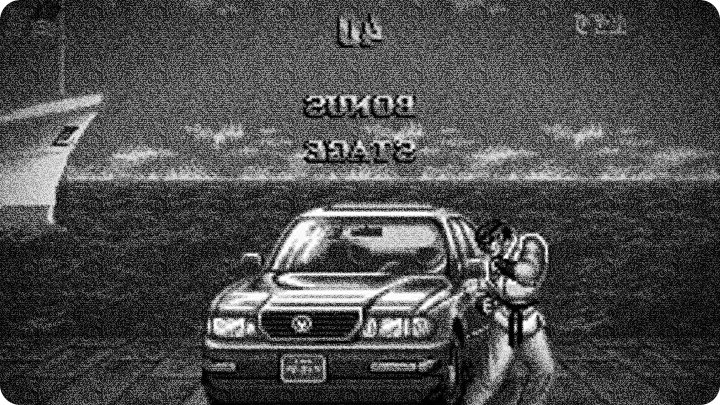
 I remember when someone attempted an elaborate combo to prove superiority and then, at the final act, mistimed a single input. The silence that follows a collapsed plan — that is music. I remember bravado dissolving into frantic button pressing, the sudden reliance on luck, the blaming of controllers and physics. They turn theatrical in their excuses; I appreciate the performance. Each failure is a lesson I gift, wrapped in humiliation and delivered with a smirk.
I remember when someone attempted an elaborate combo to prove superiority and then, at the final act, mistimed a single input. The silence that follows a collapsed plan — that is music. I remember bravado dissolving into frantic button pressing, the sudden reliance on luck, the blaming of controllers and physics. They turn theatrical in their excuses; I appreciate the performance. Each failure is a lesson I gift, wrapped in humiliation and delivered with a smirk.
 One last question — will you ever return to torment a new generation of hopefuls?
One last question — will you ever return to torment a new generation of hopefuls?
 Return? Of course. The stage was merely warmed by 1993, but eras change and arrogance regenerates. I will watch the ranks grow complacent, observe the new tricks they collect, and craft fresh crucibles that make their confidence curdle. Consider this conversation a soft alarm: prepare your training, refine your timing, and perhaps — if you are very careful — you will last a moment longer before I rearrange the rules again. When I come back, I will not only remember how you moved; I will anticipate how you wish you had moved. Expect that, and prepare to be unmade anew.
Return? Of course. The stage was merely warmed by 1993, but eras change and arrogance regenerates. I will watch the ranks grow complacent, observe the new tricks they collect, and craft fresh crucibles that make their confidence curdle. Consider this conversation a soft alarm: prepare your training, refine your timing, and perhaps — if you are very careful — you will last a moment longer before I rearrange the rules again. When I come back, I will not only remember how you moved; I will anticipate how you wish you had moved. Expect that, and prepare to be unmade anew.
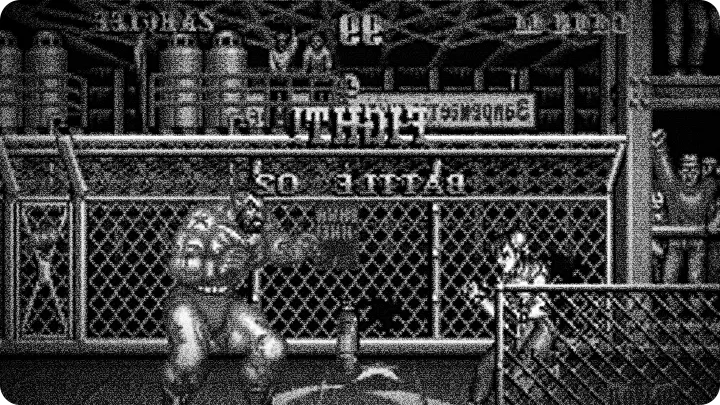
more info and data about Street Fighter II Champion Edition provided by mobyGames.com

